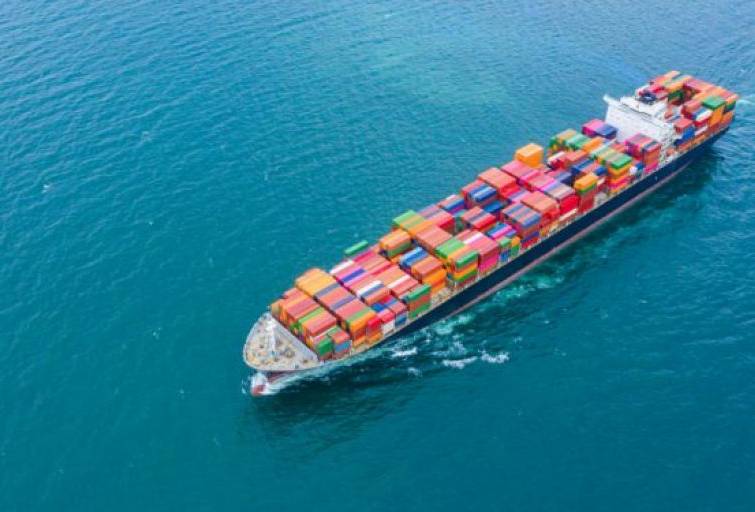Through the Ukrainian corridor, more than 50 million tons of agricultural products have passed

Since the start of the Ukrainian maritime corridor's operation, the ports of Greater Odesa have processed 50.1 million tons of products from Ukrainian farmers, with the total cargo volume reaching 75 million tons. According to the press service of the Ministry of Community and Territorial Development of Ukraine, Ukrainian goods have been exported to 50 countries around the world in Africa, Asia, Europe, and America.
In fact, while the aggressor continues to systematically destroy port infrastructure, putting the world at risk of a food crisis, Ukraine reaffirms its status as a key player in the global food market, increasing export volumes despite ongoing shelling. Therefore, starting from March 15, 2024, the "Ukrainian corridor," which passes through the ports of Greater Odesa, began operating around the clock, increasing the export figures for agricultural and other products by 20%.
It should be noted that the Security and Defense Forces continue to ensure a maritime route for civilian vessels. In addition to the security component, there are currently two main risk insurance instruments for shipowners whose vessels are heading to or from Ukrainian seaports. Firstly, there is a mechanism for insurance provided by leading insurance companies and banks worldwide with the assistance of the Government of the United Kingdom. Secondly, there are guarantees for compensation to charterers, operators, and owners of vessels and inland waterway vessels while such vessels are in the territorial waters of Ukraine.
It should be noted that a temporary maritime route was established after Russia began blocking vessels that were using the then-existing "grain corridor." At the initiative of Ukrainian President Volodymyr Zelensky, the "grain corridor" was organized with the support of the UN and Turkey to ensure global food security. However, Russia was one of the parties to the agreement, and after systematic violations by the aggressor state, a decision was made to create an alternative route, which became known as the "Ukrainian corridor." On August 16 of last year, the first blocked vessel, JOSEPH SHULTE, utilized the maritime route established by the Ukrainian Navy for commercial ships. Now, this maritime route allows for the transportation of not only agricultural products. There are a number of other advantages—specifically, Ukraine independently controls the export situation.
Currently, the only guarantor of safety for shipping in Ukraine is the Armed Forces of Ukraine. The Ministry of Infrastructure of Ukraine, for its part, ensures not only the functioning but also the further development of the temporary maritime corridor. This year, container services to the ports of Odesa and Chornomorsk have been restored.
At the same time, Russia is deliberately intensifying attacks on the port infrastructure of southern Ukraine. The aggressor is trying to destroy Ukraine's export potential and is effectively, consciously provoking a food crisis in those countries that depend directly on supplies of Ukrainian grain. Over the past three months, the enemy has carried out nearly 60 such attacks. As a result, almost 300 port infrastructure facilities, 177 vehicles, and 22 civilian ships have been damaged or destroyed. But the most tragic aspect is that 79 civilians have been affected, including port workers, logistics company employees, and ship crews.
 Found a mistake on the site? Tell us:
Found a mistake on the site? Tell us:

 Telegram
Telegram